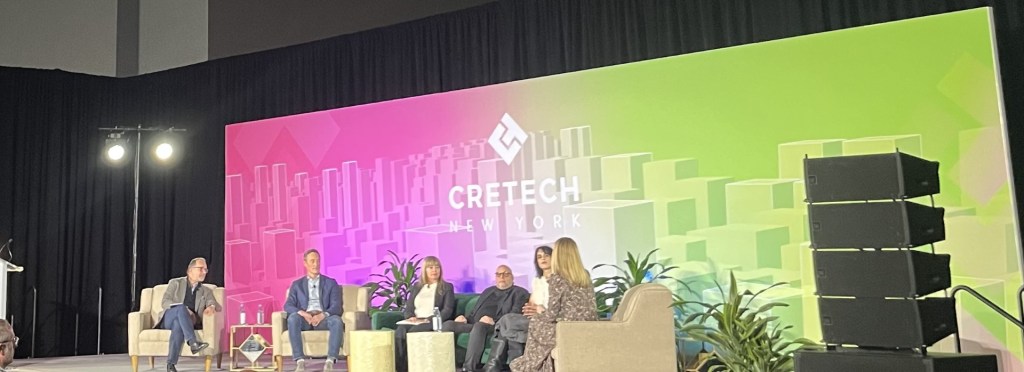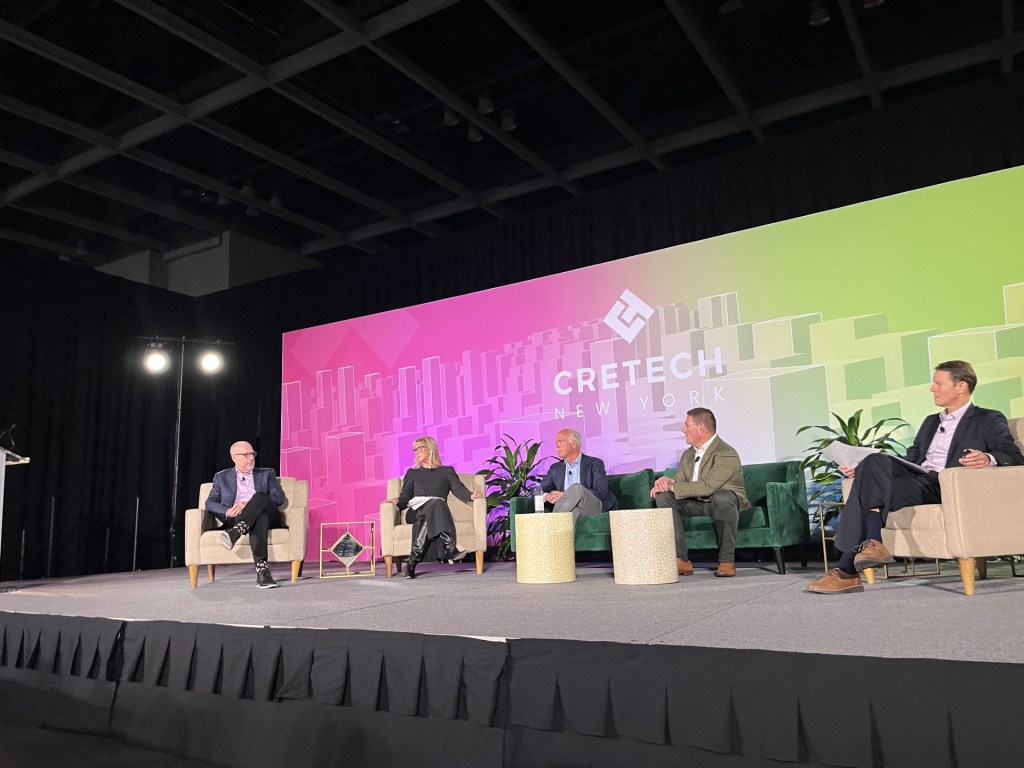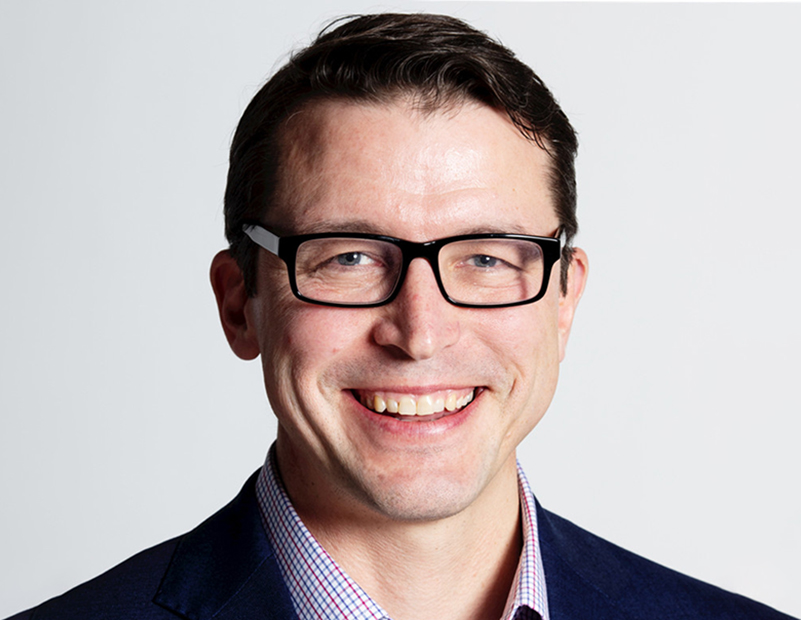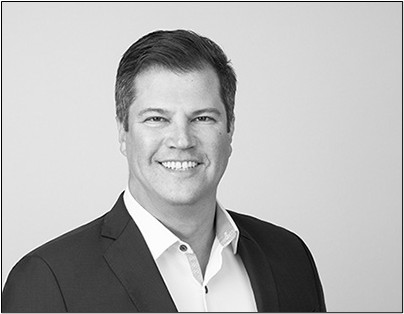CREtech Special Report: Industry Leaders Talk Brass Tacks
Reimagining the office sector and proptech's more sophisticated role in sustainability dominated the first day of the conference.

On the first day of CREtech New York 2024, discussions around specific uses of ever-more sophisticated proptech took a back seat to the larger employee retention, revenue generation and sustainability goals of some of the industry’s top owners, operators and tenants.
The new flight to quality
At the conference’s first panel discussion, a group of real estate directors at Fortune 500 companies shared what they are looking for the most in their office spaces and tech stacks, at a deeply uncertain time for the sector.
Where the flight to quality has long been associated with the shiniest amenities, some tenants now put physical and mental wellness, location, leasing term flexibility and operator sustainability commitments above a fitness center or ground-floor retail space. “I don’t consider it to be a flight to quality. It’s an expansion of the definition of quality,” said Laurie Rothenberg, global real estate & workplace strategy lead counsel at Pfizer.
Frank Cuevas, vice president of global real estate at McKesson, sees this as especially applying to opportunities for interpersonal collaboration at the office. “The biggest amenity is seeing other people,” he said.
Applying these principles to building designs and technology adoptions is more difficult. “We’re in such a unique time where real estate has changed more in five years than it has in the last five decades, and people don’t know what they want,” said Cuevas. “Employees want to be at home, yet they want better technology. They want spaces that are quiet, and (also) spaces that are vibrant.”
READ ALSO: Growth in Office Tenant Costs Moderates
If there’s one thing that tenants universally want, however, it’s spaces that bolster physical and mental wellbeing. “It’s not just the building; is there access to fresh air and open spaces?” asked Elaine Schultz, vice president of workplace services Americas at Salesforce. “Is this where you are going to put your innovation center and top customers?”
Another area that captures Cuevas’ sentiments is lease terms. Now, companies such as Interpublic Group want shorter terms that have more opportunity for expanding or downsizing as they see fit.
In practice, applying the above principles to the design process leads to floorplans that resemble coworking and residential spaces, with tenants preferring flexible desking options right next to bookable conference rooms. “This has always been important for Salesforce; we purposefully pick residential finishes, so it feels like you are not just inside an old-fashioned cubicle farm,” Schultz said.
Sustainability: from boiler room to boardroom

These more pragmatic views on office work also apply to tenants’ and operators’ views on using technology for meeting their sustainability commitments. For their part, the tenants stressed using accurate measurement tools for energy expenditures and carbon emissions as being equally important to a landlord’s commitment or a building’s LEED certification. “It can have all the bells and whistles, but you need to get value out of it,” Schultz said.
And that’s not just a sentiment held by the tenants; it’s being directly observed by both property owners and the proptech industry itself. “It’s the tenant’s action driving the occurrence of penalties, which are a direct hit to (a building’s) NOI,” said Jonathan Pearce, senior managing director of leasing at Hines. “A lot of it is due to the total cost of occupancy, and it’s not just about the rent; end users are massively focused on their carbon footprint as well.”
Such a strategy is also embraced on the operator end. A panel of executives from BXP discussed the latest uses of technology for meeting the firm’s sustainability commitments, some of the most aggressive in the industry. And the efforts are paying off. The firm’s Manhattan properties are 91 percent leased.
But commitments themselves are getting harder to make. “It’s the hardest time to do public target setting because a lot of the low-hanging fruit has been picked,” said Ben Myers, the firm’s senior vice president of sustainability.
Now, decisions that BXP makes around using new technology for meeting sustainability commitments must have on-the-ground support from engineers and maintenance personnel, all the way up to the C-Suite; “from the boiler room to the boardroom,” as Myers put it.
One leg up that the firm has is its vertical integration, and its creation of an in-house data collection and analysis platform. In one case, the company tightened and sealed an entire building’s windows, but would still have HVAC energy expenditures that were exceeding its standards. In turn, the operational team monitoring the building’s emissions on a 24/7 basis led to the firm avoiding $3 million in additional costs.
Don’t jump on the proptech bandwagon
The executives see competent personnel and a willingness to experiment with new technologies over simply adopting the latest proptech as the key to achieving sustainability goals. “Take the technology, model it, and see what works; if you don’t have the wherewithal to throw an idea on the table, nothing is ever going to move the needle,” Myers advised.
At the same time, there are some solutions that should be avoided outright. Data lakes can overcomplicate any attempts at monitoring and modeling energy efficiency, while AI is best used as an assistant to the goals of sustainability teams, and not an outright replacement for them. “If anyone tries to sell you a data lake right now, run from that solution,” cautioned Jennifer Nuckles, CEO of R-Zero. “It’s frustrating to the CRE owner when you have to deal with 26 different vendors.”
If possible, stakeholders would do well to develop their sustainability-oriented tech stacks in-house. “We like the idea of a walled garden, but you need something that is completely open source,” Pearce said. “Companies that went big on those are finding that they have to rebuild.”







You must be logged in to post a comment.